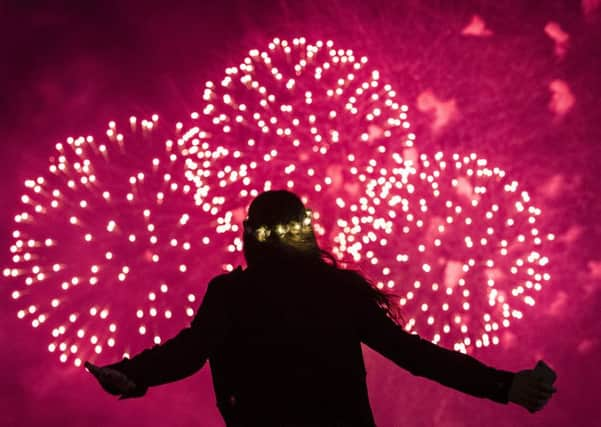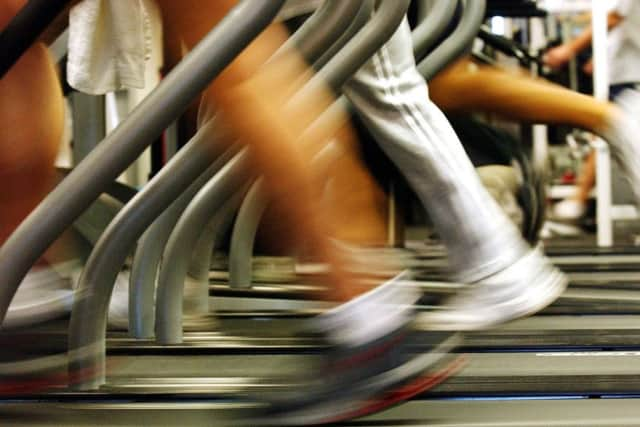Fulfilling New Year resolutions best achieved by examining our pasts: Neil McNicholas


Albert Einstein may have been right when he proposed that time is relative.
Advertisement
Hide AdAdvertisement
Hide AdIf you were to catch a plane from London to New York, the flight would take about eight hours, but because New York is five hours behind the UK, you would be only three hours older when you got there because you had travelled into the past.


On the other hand, flying from New York to London takes only about six hours because of the jet stream, but London is five hours ahead and so when you arrived you would be 11 hours older than when you left New York because you had travelled into the future.
To put it another way, in the days of Concorde you could actually arrive in New York an hour and a half before you had left London.
Advertisement
Hide AdAdvertisement
Hide AdAnd if you fly over the Pacific, east to west, and so cross the International Date Line, you would arrive the day before you left.


Which raises the interesting question that if you were in a boat and kept crossing back and forth across the date line, would time stand still? I’ll leave you to figure that one out. Or if you stand astride the prime meridian at Greenwich, half your body will be in the past and the other half in the future and you won’t feel a thing.
It’s the same with crossing the Channel. You arrive in France in the future as they are one hour ahead, and then returning from France you arrive before you leave (and you thought ferry travel was slow!).
Every year we turn our clocks forward an hour in the spring and back again an hour in the autumn – time travel just like HG Wells imagined in The Time Machine.
Advertisement
Hide AdAdvertisement
Hide AdWhen I first went to work in the Middle East it was 1978 when I took off from Heathrow, but when I landed in Saudi, where the Islamic calendar was in use, it was only 1399. I left Saudi in 1404 and arrived back (or should I say forward) here in 1983, proving once again that time is relative.
We measure the length of a day from sunrise to sunrise. The International Space Station orbits the earth once every 92 minutes, meaning that astronauts experience 15 sunrises every earth day, meaning also that if they spent a year on the Space Station they would be 15 years older when they eventually returned to Earth.
For some reason, New Year’s Eve always provides us with an incentive to look back on the year that has passed and, in most cases I’m sure, to resolve to do better in the year that lies ahead.
But why New Year’s Eve in particular? If you think about it, there really is no more significance to January 1 than there was to December 31.
Advertisement
Hide AdAdvertisement
Hide AdBut as the bells ring in the New Year or, in the good old days, as Jimmy Shand, Kenneth McKellar, Moira Anderson or Andy Stewart saw in the New Year north of the border in grainy black and white on our television sets, thoughts always turn to how we can make the year ahead better.
But then how many of us find we have failed to fulfil those resolutions when the next December 31 comes around?
In the movie Groundhog Day, Bill Murray keeps reliving the same 24 hours over and over and, while it takes him a while to realise what’s happening, he also realises that he has the opportunity to do things differently the next time the same day begins.
While we may get only one chance a year to make New Year’s resolutions, there’s nothing stopping us from reviewing and renewing those good intentions all through the year.
Advertisement
Hide AdAdvertisement
Hide AdDoing good, or even just trying to do better, shouldn’t be restricted to the alcohol-fogged musings of New Year’s Eve or there’s little wonder we so often fail to keep the resolutions we make.
Time is relative – it’s how we spend it that matters. We are all on a journey into the future and we don’t get a chance to repeat the past.
However, like Ebenezer Scrooge in A Christmas Carol, we can look back at our past – years past or even just hours past – and if there is anything we wish we had done differently (like not having wasted our time reading this column) try to ensure that the future is better for that lesson learned.
Happy New Year!
Neil McNicholas is a parish priest in Yarm.